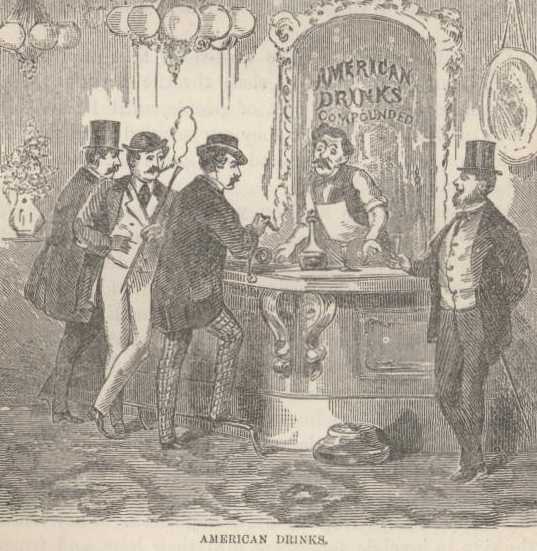What excellent order they kept about that vast depot! There was no frantic crowding and jostling, no shouting and swearing, and no swaggering intrusion of services by rowdy hackmen. These latter gentry stood outside—stood quietly by their long line of vehicles and said never a word. A kind of hackman general seemed to have the whole matter of transportation in his hands. He politely received the passengers and ushered them to the kind of conveyance they wanted, and told the driver where to deliver them. There was no “talking back,” no dissatisfaction about overcharging, no grumbling about anything. In a little while we were speeding through the streets of Paris and delightfully recognizing certain names and places with which books had long ago made us familiar. It was like meeting an old friend when we read Rue de Rivoli on the street corner; we knew the genuine vast palace of the Louvre as well as we knew its picture; when we passed by the Column of July we needed no one to tell us what it was or to remind us that on its site once stood the grim Bastille, that grave of human hopes and happiness, that dismal prison house within whose dungeons so many young faces put on the wrinkles of age, so many proud spirits grew humble, so many brave hearts broke.
We secured rooms at the hotel, or rather, we had three beds put into one room, so that we might be together, and then we went out to a restaurant, just after lamplighting, and ate a comfortable, satisfactory, lingering dinner. It was a pleasure to eat where everything was so tidy, the food so well cooked, the waiters so polite, and the coming and departing company so moustached, so frisky, so affable, so fearfully and wonderfully Frenchy! All the surroundings were gay and enlivening. Two hundred people sat at little tables on the sidewalk, sipping wine and coffee; the streets were thronged with light vehicles and with joyous pleasure-seekers; there was music in the air, life and action all about us, and a conflagration of gaslight everywhere!

Page 410-11 The Life of Mark Twain: The Early Years, 1835-1871